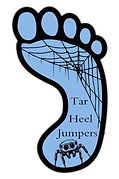top of page
LONGEST RUNNING USDA LICENSED BREEDER OF PEDIGREED HEDGEHOGS IN NORTH CAROLINA

We track pedigrees for
health & personality in
all species we produce.
757-639-1134
Replacement Health & WHS Warranty
Located in Northeastern NC
Pick-up by appointment in
Elizabeth City, Rocky Mount, or
at expo locations in NC, VA, & MD
Shipping Available to Legal States
AIRLINES SHIPPING IS CURRENTLY SUSPENDED DUE TO PET EMBARGO

Carolina Quillery™
HEDGEHOGS
Tenrecs, Short Tail Opossums,
& Long Eared Hedgehogs
Schedule to meet for pick-up
Feb.14th Richmond VA
Feb.21st in Concord NC (tentative)
Feb.28th in Fishersville VA
WE ACCEPT PAYMENTS THROUGH SQUARE, AFTERPAY, & CASH APP!
HERD

Add a Title

Add a Title

Add a Title

Add a Title

Add a Title

Add a Title

Add a Title

Add a Title

Add a Title
bottom of page
